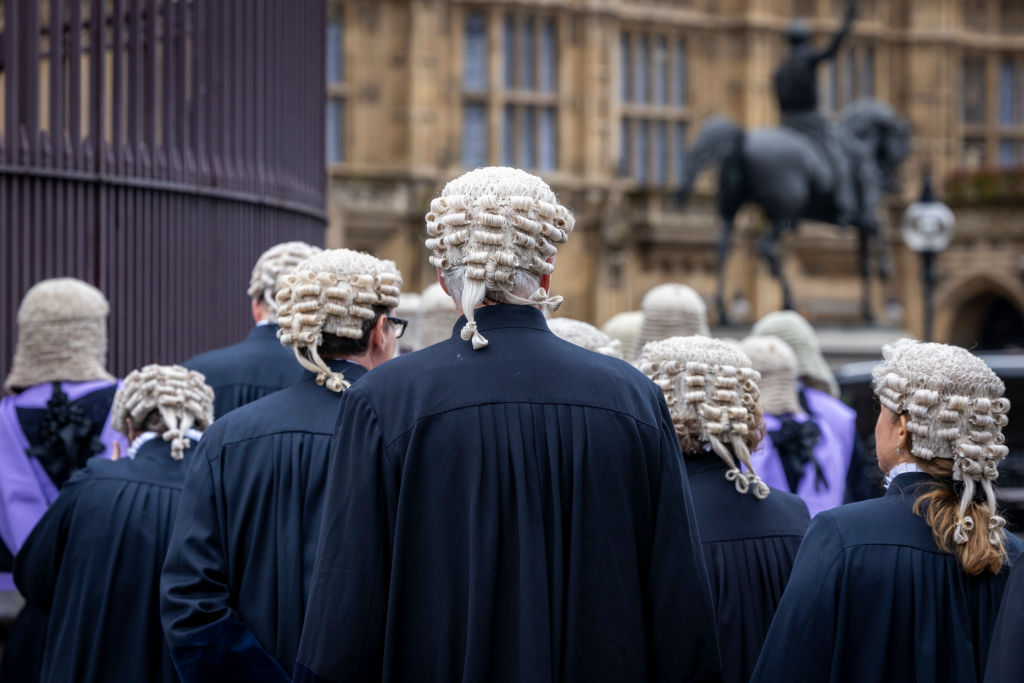Those who believe in free speech, and those who are particularly concerned by plans to have ‘Islamophobia’ codified, ought to be delighted. A judge has ruled that criticising Islam, or viewing the faith as problematic, is a protected belief under equalities law.
As reported in The Sunday Telegraph this morning, an employment tribunal judge has found that Patrick Lee, 61, who was found guilty of misconduct last April by the Institute and Faculty of Actuaries over posts on X – including one calling the Prophet Mohammed a ‘monster’ – was merely ‘critical of certain Islamic doctrines and practices, and not to individual followers of Islam or to the Islamic faith/religion at large.’
Mr Lee has now won legal protection for his beliefs. It’s the first time a court has ruled that ‘Islamic-critical’ beliefs are protected under the Equality Act 2010. Previous claimants had been informed that such views were not ‘worthy of respect in a democracy’.
Those who believe in free speech ought to be to delighted. But they shouldn’t. While many will celebrate this verdict, it merely worsens matters in the wider scheme of things. It further entrenches the idea that the state can dictate what we can say – and even decide who we are.
We are in our current free-speech impasse partly as a consequence of decades of state-sponsored multiculturalism, this being an ill-judged response to our society becoming increasingly multi-ethnic. That innocent-sounding, airy mantra, ‘celebrating diversity’, has in cold reality resulted in a society that has become more fractured and fractious. Generations of immigrants, their descendants, and now even the children of natives of themselves – today officially designated as ‘white British’ – have been either cajoled or forced into seeing themselves foremost through the prism of ethnicity.
The scenes we saw outside Villa Park in Birmingham this week, and the train of events that lead to supporters from Israel being banned from attending a football match for fear of what some local Muslims might do, is a microcosm of our predicament. The arms of the state now intervene to keep different ethnic tribes from coming to blows with each other (this week the most threatening tribe won, which bodes very badly). As grave as this development may be, it’s merely indicative of a problem that has festered for ages. We partly have a free speech crisis because successive governments fear the consequences of people speaking freely in a fragmented society lest it cause ‘offence’ or imperil ‘community cohesion.’
The belief that Britain consists not of free individuals, but of ethnic or religious blocs whose sacrosanct and brittle identities must be celebrated, bean-counted and ‘protected’ in law: this is the philosophy that has brought us to the now real nightmare scenario of sectarianism.
State-encouraged multiculturalism in this country in the past fifty years tragically mirrors a malaise we and those in mainland Europe thought we had eradicated in the 17th-century: the notion that someone’s identity and belief was paramount and demanded respect from others. Only after the bloody religious wars on the Continent that concluded with the Treaty of Westphalia in 1648 and the religious conflicts that gripped these isles at the same time, pitting Anglican against Dissenter against Catholic, did we come to our senses and resign ourselves to accept: what people are or what they believe is a private matter.
‘Much of the odious legislation of recent years has sprung from the assumption that our rulers have the authority to set the parameters of public discourse’
European civilisation henceforth thrived, and the Enlightenment flowered, under the precious separation between the public and the private sphere. In England it put at end to sectarianism as force to speak of. We have also been blessed with having had for centuries the concept of ‘negative liberty’ – the idea that everything is permitted except that which which is specifically outlawed.
That principle has been undermined in recent decades by a type of Jacobin liberal ideologue who would replace it ‘positive liberty’, the notion that it is the state which by default determines what is allowed. Much of the odious legislation of recent years has sprung from the assumption that our rulers have the authority to set the parameters of public discourse – from hate speech laws, non-crime hate incidents to equality laws themselves. Specious concepts such as ‘institutional’, ‘unwitting’ or ‘perceived’ racism would have been unthinkable without the assumption that the omniscient state is the ultimate arbiter of what can be said.
This ruling in favour of ‘Islamic-critical’ beliefs insidiously perpetuates this problem. If it proves a landmark case, it will further serve to pigeon-hole us according to our ethnic identities and our ‘beliefs’, and in doing so, it will only aggravate inter-ethnic strife.
It’s not up to politicians or judges to lay down the rules and boundaries of speech, unless they already breach existing and ancient ones. We shouldn’t be treated equal because of who we are or what we believe, but irrespective of any of these factors.
Patrick West is a columnist for Spiked and author of Get Over Yourself: Nietzsche For Our Times (Societas, 2017). Contact him on X at @patrickxwest






Comments